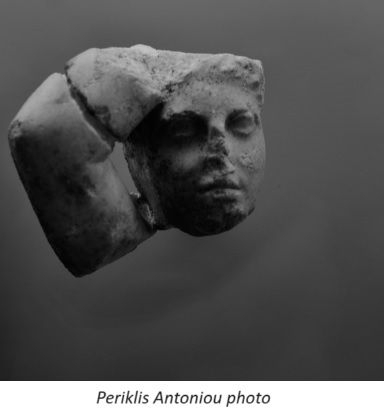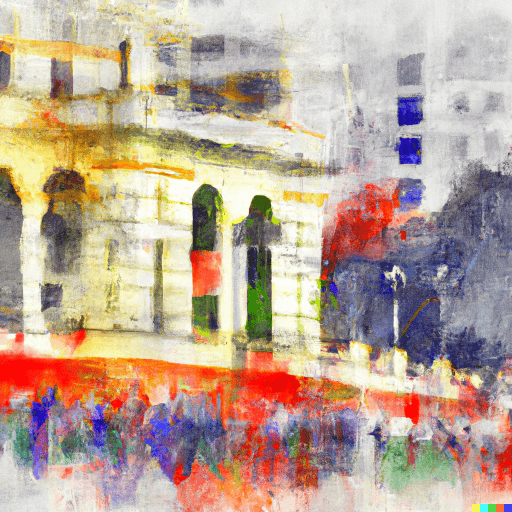The present issue of the journal can be considered as being divided into two parts.
The second part discusses the important psychotherapeutic work that is being done in KAT Hospital, with injured individuals - patients with severe physical injuries - and the multifaceted intervention in individuals and families, on both the body and the psyche.
The first part is a tribute to the 50th anniversary of the “Polytechnic uprising of November 17 1973” that comprises of a historical retrospection of individual, group, social, and political traumas from the period of the dictatorship.
As the reader will discover, both the contemporary discussions of the psychotherapeutic work in KAT, and the historical recollections of the “Polytechnic uprising”, are done in an experiential manner, through personal reminiscences, emotions, experiences and the assignment of significance to them…
Even I, in writing this introduction, will begin with personal memories and experiences.
In November 1973, I had just turned 13. I was growing up in a block of flats in Ampelokipi, at 122 Vassilissis Sofias’ Av. In 1967 – me being seven at the time – we would see the tank parked in the small park in front of our house. Up to then, I had only seen plastic toys of tanks. It was imposing but mostly scary. I remember how I was looking at it, almost hiding behind the curtain. The fantasy I had was that if I were to do something improper, it could go as far as shooting me with its canon. There were also two medical students living in small student apartments in the same block of flats: Nikos and Giorgos. Nikos was from Corfu, and Giorgos was from Patras. I was only a wee small lad but we knew each other.
Nikos[1] was my hero. Handsome, tall, a tennis player, a good student and deep into politics. In 1970, the dictatorship drafted him into the army, where he spent so many years I can’t even remember.
Nineteen Seventy-Three finds me in the first year of secondary school. My mother, a divorcee, and still in an adolescent state of mind, would come and go from the Polytechnic with her group of friends. Sometimes, she would come back crying, either from the teargas, or from rage and despair. My grandfather would consistently listen to Deutsche Welle on the radio, and I would listen with him.
I was overwhelmed by an emotion of fear and tremendous injustice. “How is it possible for someone to be a student, to want to become a doctor, to change the world for the better, to fight for values like freedom, democracy, and equality and be punished for it? Not only punished, but also wanted dead. Who are these people anyway? How did they get to the position where they can decide which of us will live and which of us will die?” I was thinking with the naivety of a 13-year-old.
“This is the Polytechnic…, People of Greece, they are killing your children… How can you remain indifferent?” The heart wrenching cries of the Polytechnic radio station announcers would be heard echoing, only a few days later.
Now, at 63, I cannot help but ask myself something similar.
The Polytechnic uprising is a prime example of political activism, awakening and assertion. I simply wonder what kind of actions would be necessary today. What could lead to the social awakening of the majority today? Or at least, how can a critical mass emerge for the beginning of a transformation of the wider system towards an advancing/upwards course?
I believe that this journal –intentionally or not – has a political derivative among other things. Not in the strict sense, but in the sense of the awakening that can be achieved through knowledge and critical thinking; through analysis and synthesis of ideas and concepts. In this issue, experiential references play a central part. The stories of individuals and groups inside difficult frameworks that are toxic and rigid. It manifests the struggle of people with sensitivities, dreams and hopes to serve values that are in shortage.
Kia Thanopoulou, through her supervision, and Kyriaki Vagena, Vasiliki Panou and Anastasia Kasiola through their presentations, highlight the effort of the KAT General Hospital psychologists to call attention to the importance of the holistic approach, and the difficulty of training and support interventions in a doctor-oriented environment that is focused on scientific dichotomies. In other words, they highlight the effort to inspire and instill new values and views to the way that human beings are perceived as biopsychosocial entities.
Thus, we can see that this issue combines two sections that are connected to one another: Trauma(s) and the attempts to heal them, to restore the health and balance of individuals, families and social groups.
Finally, the book review of Bessel Van Den Kolk’s “The Body Keeps the Score”, by Katerina Theodoraki and Kostas Batsalias, introduces us to a pluralistic approach of psychic “trauma”, and the new alternative suggestions for coping with it.
This may be an overly “political” introduction, and an overly political content for a psychotherapy journal. However, I believe it is justified, if one considers the wide space that sociopolitical concerns occupy in the psychotherapeutic process, today. Maybe the psychotherapeutic process – and more specifically psychotherapy viewed through a systemic lens – will form a factor of political awakening, through personal and relational awareness, and the lifting of illusionary defensive fantasies regarding the self, the others, and the world around us. Because ultimately, “we are the others”…
On behalf of the Editorial Board,
Dimitris Kokkalis
We thank Pericles Antoniou for providing the photographs that adorn most of the articles of this issue.
[1]Nikos was Nikos Moros who became an excellent psychiatrist, who died prematurely.


